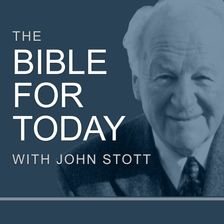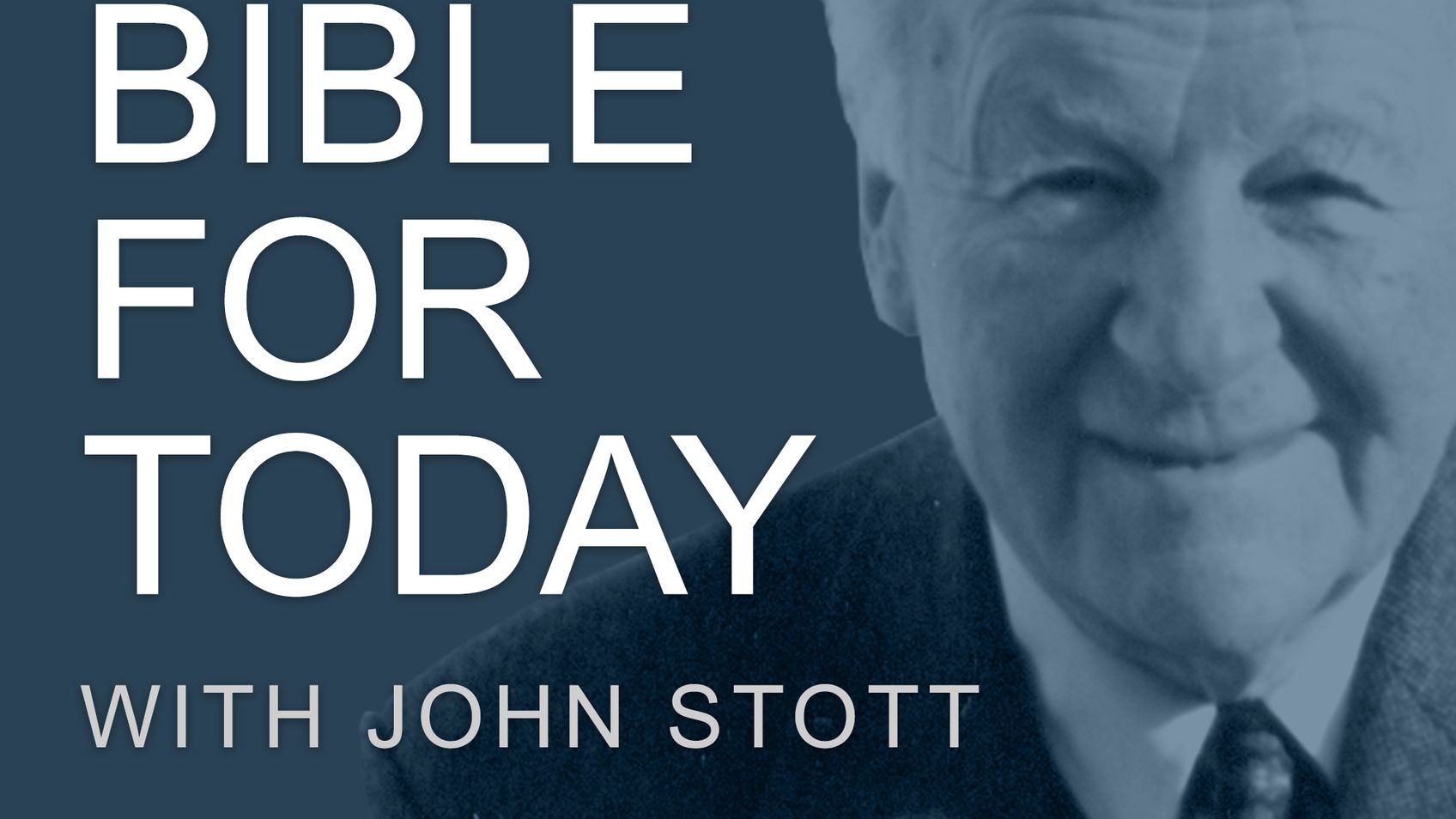The Bible; Trustworthy or Fallible? - Part 1
June 20, 2021

The Bible for Today with John StottPremier
John Stott shows that in a world of relativism there is absolute truth to be found in the Bible, and why the Bible can be seen to be completely infallible.
More From The Bible for Today with John Stott

The Bible; Trustworthy or Fallible? - Part 2
The Bible for Today with John Stott
June 27, 2021
John Stott investigates how of the thousands who saw Jesus when He was on earth, some wrote eye witness accounts which we now have as the four Gospels

God of Love - Part 1
The Bible for Today with John Stott
July 4, 2021
John Stott explains why we will never truly know what it is to be a human being unless we know the God who made us and why there is a huge difference

God of Love - Part 2
The Bible for Today with John Stott
July 11, 2021
John Stott shows us that if we have been born again we will manifest the nature of the God who has begotten us again and we should exhibit the love of

The Cross and God - Part 2
The Bible for Today with John Stott
June 13, 2021
John Stott explains that God's love is shown to us by the action he took in giving the most valuable gift possible in the person of His son Jesus.

The Cross and God - Part 1
The Bible for Today with John Stott
June 6, 2021
John Stott shows how that the cross of Christ is not only a deed done for us but a word spoken to us. The cross demonstrates God's love to us despite

Jesus Christ: Tried, Tested And Proven - Part 2
The Bible for Today with John Stott
May 30, 2021
John Stott shows that although we have never seen Jesus, there were many who did when He was on earth. Some of those people wrote down eye-witness acc
More on OpenTheo

Conservatism and Religious Freedom with John Wilsey
Life and Books and Everything
October 27, 2025
What is conservatism? And why does it go hand in hand with religious freedom? How should we think about the American experiment of ordered liberty? Ha

What About Those Who Never Heard the Name of Jesus?
#STRask
December 22, 2025
Questions about what will happen to those who never heard of Jesus or were brought up in a different faith, whether there’s biblical warrant to think

Why Would Any Rational Person Have to Use Any Religious Book?
#STRask
December 8, 2025
Questions about why any rational person would have to use any religious book, whether apologetics would be redundant if there were actually a good, un

Is 1 Corinthians 12:3 a Black-and-White Tool for Discernment?
#STRask
October 27, 2025
Questions about whether the claim in 1 Corinthians that “no one can say ‘Jesus is Lord’ except in the Holy Spirit” is a black-and-white tool for disce

Can You Recommend Good Books with More In-Depth Information and Ideas?
#STRask
January 22, 2026
Questions about good books on Christian apologetics, philosophy, and theology with more in-depth information and ideas, and resources to help an intel

Are Demon Possessions and Exorcisms in the New Testament Literal?
#STRask
December 11, 2025
Questions about whether references to demon possessions and exorcisms in the New Testament are literal, how to talk to young children about ghosts, an

Did God Create Us So He Wouldn’t Be Alone?
#STRask
November 3, 2025
Questions about whether God created us so he wouldn’t be alone, what he had before us, and a comparison between the Muslim view of God and the Christi

What Is Wrong with Wokeness? With Neil Shenvi
Life and Books and Everything
January 19, 2026
In this timely interview, Kevin talks to Neil Shenvi about his new book (co-authored with Pat Sawyer), entitled “Post Woke: Asserting a Biblical Visio

Why Does the Bible Teach You How to Be a Proper Slave Owner?
#STRask
November 13, 2025
Question about why it seems like the Bible teaches you how to be a proper slave owner rather than than saying, “Stop it. Give them freedom.”
* It s

Why Are So Many Christians Condemning LGB People Just Because of How They Love?
#STRask
January 15, 2026
Questions about Christians condemning LGB people just because of how they love, how God can expect someone to be celibate when others are free to marr

The Making of the American Mind with Matthew Spalding
Life and Books and Everything
February 2, 2026
The United States is unique in how much attention it pays to its founding, its founders, and its founding documents. Arguably, the most famous and mos

How Would You Convince Someone That Evil Exists?
#STRask
November 17, 2025
Questions about how to convince someone that evil exists, whether Charlie Kirk’s murder was part of God’s plan, whether that would mean the murderer d

Can Two Logical People Come to Conflicting Conclusions Without Committing a Fallacy?
#STRask
January 8, 2026
Questions about whether two logical people can come to conflicting conclusions on a topic without committing a fallacy, how Greg, as a public figure,

E. Calvin Beisner: Climate and Energy Policy
Knight & Rose Show
January 4, 2026
Wintery Knight and Desert Rose welcome Dr. E. Calvin Beisner to discuss climate and energy policy. They explore Biblical dominion and stewardship, con

Are You Accursed If You Tithe?
#STRask
December 15, 2025
Questions about whether anyone who tithes is not a Christian and is accursed since Paul says that if you obey one part of the Mosaic Law you’re obliga
